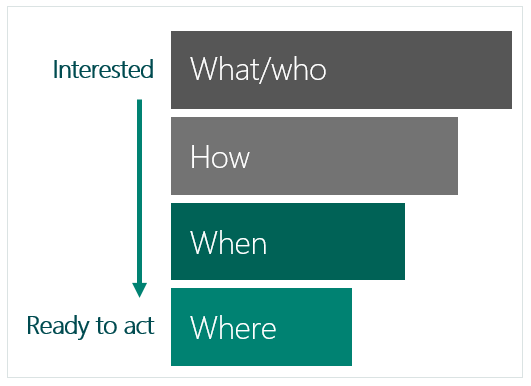Hey Siri, Thanks for the Perfect Results!
Get ready, digital marketers. Voice search is changing SEO strategy for good. Although we have been familiar with digital assistants since the introduction of Siri in 2011, they have recently become more popular. The variety of options for personal assistants now include Alexa (Amazon), Cortana (Microsoft) and Google Assistant. These tools are changing the way we use the internet and marketers will have to adapt with the change in consumer behavior.
Here are a couple of stats that show the growth in popularity of personal assistants:
- Over half of U.S. teens and 41% of U.S. adults use voice search on a regular basis
- 1 in 5 searches made with the Google Android app are voice searches
- A survey of 39 SEO experts listed voice search third in a list of the largest SEO trends for 2017 and beyond
So now that you're convinced voice search is gaining traction, you probably want to know what’s different about voice search so that you can become a SEO expert in this new age of digital assistants.
Digital assistants have the ability to capture so much more information from your voice search than a typed Google search can. One way Siri or Alexa can better understand the user when using voice search is by analyzing the differences in the way users search something. When you use voice search, you use full sentences. Full sentences can tell the search engines more about the intent of a search and where a consumer is on their path to purchase. When speaking in full sentences, you use words like "what/who," "how," when and "where." When users phrase their questions with the words “what” or “who,” it shows the personal assistant that they are early in the consumer journey. On the other hand, when consumers ask their personal digital assistant “where," it shows the digital assistant that the consumer is close to the buying stage of the consumer journey. Each of these searches would produce different search results.
Results from a voice search on a mobile phone can deliver even more accurate results for your intended search. Phones give digital assistants information on the location of the user in addition to search history. Voice search on a phone usually leads to localized results which lead to a better user experience. Another aspect that yields a better user experience is that voice search only returns 1-4 results. This is a lot easier for the user to digest rather than the 38 million results you might get from a typed Google search.
Overall, voice search delivers a better user experience to a consumer by being able to conveniently give the results that the consumer was looking for.
So, what can your business do to adapt to voice search?
Since users speak sentences in voice search, marketers should choose longer keywords when buying ads on search engines. Additionally, marketers may want to add questions to keyword lists. This will optimize your business in voice search results. Voice search will train businesses to better anticipate consumers needs, which will deliver a better experience overall. So, digital marketers- get ready to adopt a voice search strategy, otherwise you will be left in the dust of the typed search world!
Never miss an update from “The Shoppe,” sign up for our email list today!
Subscribe
Sign up with your email address to receive news and updates.
Subscribe
We respect your privacy.

















